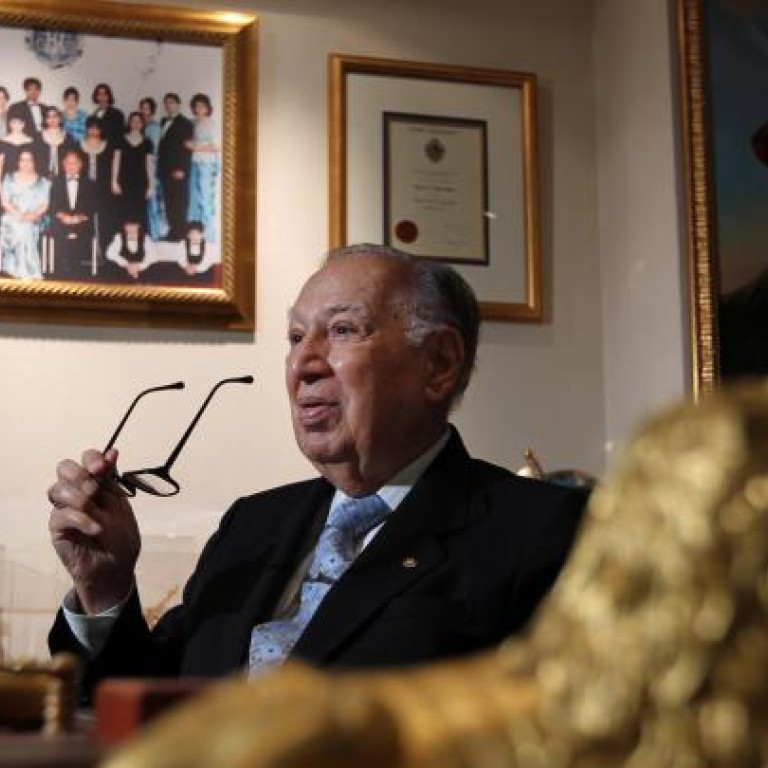
How do 90 Harilelas get along under one roof? With plenty of respect
An extended family like no other, the clan manages to keep life harmonious in their 25,000 square foot Kowloon Tong complex
The saying "without good fences, there cannot be good neighbours" might not seem appropriate for a family with 90 members living on the same property.
But it fits the Harilela family who, according to patriarch Hari, "maintain a kind of privacy and harmony" in their home - a 25,000 square foot complex in Kowloon Tong.
In a city where the size of nuclear families is shrinking and extended families rarely live together, 60 Harilelas live in the main mansion while 30 live in a connecting house.
They include Hari Harilela's brothers and their wives, children-in-law and other members of their extended families.
Harilela says a sense of unity and respect for individuals keeps families together.
Everyone in a big family should understand the need for "a lot of sacrifice and understanding in many areas", he said in an interview with the . "As elders, we don't interfere that much.
"We maintain a kind of privacy and harmony in the house. I think that helps a lot," he said.
"We live together under one roof. But if I want to see my brother, I will just not walk in, I will call him up. We never ask them if they are buying jewellery for their wives or if they are going to the races."
Born in 1922 in India, Harilela went to Guangzhou, then known as Canton, in 1930 with his mother to join his father, who owned an antiques shop. But the business did not do well and young Hari left school at the age of 10. "Unfortunately, I never went to school. My father couldn't afford three dollars a month," he said, adding that he was "still learning at the age of 91".
Harilela says he has long realised education is paramount for future generations and learning should not have borders.
Making his latest donation to the University of Science and Technology, he said he had not directed it towards ethnic minorities because the money should go to those who needed it. "If I were to get a blood transfusion, I don't need an Indian blood transfusion. We are all the same."
Education could facilitate communication "without unnecessary assumptions" and bring about peace, he said.
Having stepped down as chairman of the Harilela Group, he said he would continue to find ways to contribute to society.
"Charity begins at home. I made my home here, so I will give all the charity to the people of Hong Kong," the honorary chairman of the group said.
At an age that would be the envy of many, he says he has discovered the real meaning of life rested in families and has peace of mind that allows him to watch the next generation thrive or fail.
"If I look back at my life, I was struggling and I was not successful in all businesses," he said. "Some failed, some made money. We [should] ensure this is the philosophy for the future generation, too. That they fail and they succeed. We must accept that."
Harilela's five daughters contributed 11 grandchildren to him. His sole son, Aron, married in December 2011.
